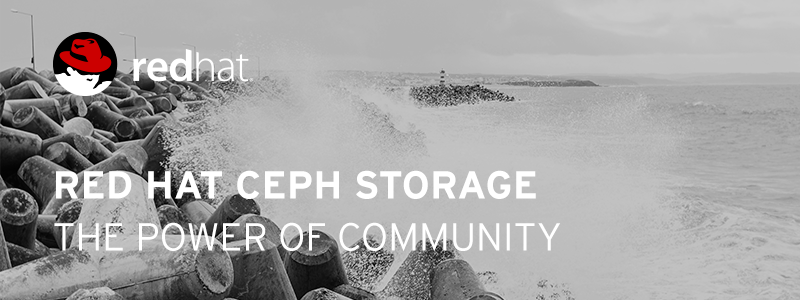Red Hat 블로그
It’s kind of like living in a neighborhood, you know, software is. Once you’ve moved in, you can try to develop your neighborhood all on your own, without the guidance and contributions of the knowing, experienced people around you. But you won’t get the best outcome. In the best neighborhoods, all neighbors welcome the contributions of those around them—Everyone stays open to the thoughts and help of the people around them who share their goal: to make what they’re developing—their neighborhood—the very best it can be. For the greater good.
Open source is powerful
Relying on others’ contributions for the greater good is, of course, the very essence of open source software: harnessing any number of experienced, creative, talented individuals and companies to make software so very much greater than it could be with just one contributor. The vibrancy and effectiveness of Ceph, the top block storage driver choice of OpenStack® users, is testament to the undeniable, transformative power of the open source way.
We’re powerful because of open source
We recently released Red Hat Ceph Storage 1.3 but, given its longstanding, open source foundation, we need to share credit for it, because some of our many strategic partners contributed to the latest release of Ceph, Hammer, on which our product is based.
Take Sandisk, for example. They’ve been actively working on a number of Ceph Hammer performance and stability improvements, systematically tackling performance bottlenecks exposed by all-flash-array configurations. Want some performance numbers? Click here.
Intel is another active Ceph community participant that regularly contributes to the Ceph code base. In fact, Intel has collaborated with us to develop a combined solution based on Ceph optimization and Ceph testing with Intel technologies, and they, too, have made a number of significant contributions to Hammer—contributions we will all benefit from, things like:
- More efficient messaging and encoding for replicated writes
- Optional SSD discard for FileStore journal
You can learn more about our joint work with Intel here.
And then there’s Yahoo, which has contributed significantly to the Ceph Object gateway, specifically addressing bucket hotspots at petascale. Yahoo is in the process of deploying its Ceph-based, multi-petabyte, software-defined storage solution, Cloud Object Store (COS), initially hosting picture thumbnails for its Flickr service. Ceph provides the flexibility Yahoo needs and, critically, supports erasure coding, saving very large amounts of physical storage compared to the alternative. To learn more about Ceph and Yahoo, click here.
Of course, these are just a few of the many contributions—corporate and individual—offered by the Ceph community, and they all deliver on Ceph’s promise to be “The Future of Storage.” (For a more complete list of contributors, click here.) Great software takes good friends—just like a neighborhood—and Ceph is one of the greatest software projects around thanks to our friends. The Ceph network is vibrant and still growing, and we look forward to what tomorrow will bring.

